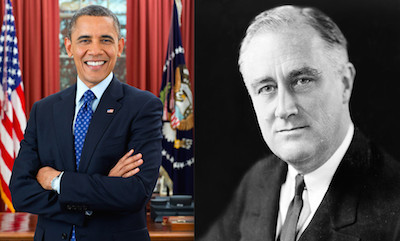Hong Kong dispute echoes Holocaust-era controvery
|
The Obama administration’s reluctance to support pro-democracy protesters in Hong Kong revives a familiar clash between human rights and diplomatic relations—a conflict that has repeatedly bedeviled past U.S. administrations, including during the Nazi era. |
When pro-democracy protesters were tear-gassed by Hong Kong police on Sept. 28, the U.S. consulate there issued a statement calling on “both sides” to show “restraint.” It said, “We do not take sides in the discussion of Hong Kong’s political development, nor do we support any particular individuals or groups involved in it.” And Jeffrey Bader, who was President Barack Obama’s China policy director until 2011, said it was “understandable” that the administration wants to prove to China that the U.S. is not “the black hand behind the protests.”
Faced with a barrage of criticism from human rights advocates, White House spokesman Josh Earnest issued a mild statement expressing hope that Beijing will permit “a genuine choice of candidates [in forthcoming Hong Kong elections] that are representative of the peoples’ and the voters’ will.” The very fact that Earnest said it only in response to criticism naturally raised questions about whether the White House really meant it.
Certainly this administration has been consistent on China. When then-Secretary of State Hillary Clinton made her first visit to China in 2009, reporters asked her if she was going to bring up human rights concerns. She replied that “those issues can’t interfere with the global economy crisis, the global climate change crisis, and the security crisis.”
A Washington Post editorial charged that “Ms. Clinton’s statement will demoralize thousands of democracy advocates in China, and it will cause many others around the world to wonder about the character of the new U.S. administration.”

 44.0°,
Mostly Cloudy
44.0°,
Mostly Cloudy 




